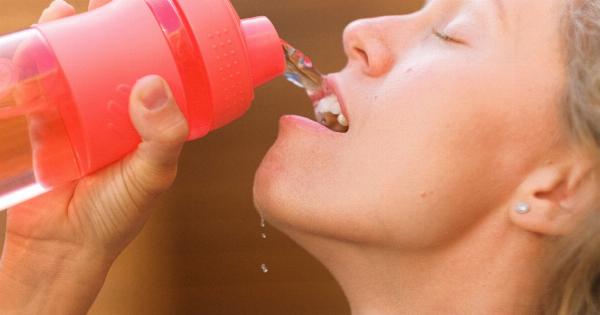Tiredness and dark circles around the eyes can make you look and feel exhausted, even if you’ve had a full night’s sleep.
These common beauty concerns can be caused by a variety of factors, such as lack of sleep, stress, genetics, and even allergies. Thankfully, there are several eye treatments available that can help combat tiredness and reduce the appearance of dark circles, giving you a refreshed and rejuvenated look.
1. Cold Compress
A simple and effective treatment for tiredness and dark circles is the use of a cold compress. Cold temperature can help constrict blood vessels around the eyes, reducing puffiness and enhancing blood circulation.
Here’s how you can use this method:.
- Wrap a few ice cubes in a clean towel or use a freezer-safe gel eye mask.
- Apply the cold compress gently to your closed eyelids for about 10-15 minutes.
- Repeat this process twice a day, once in the morning and once before going to bed.
You can also use chilled cucumber slices, damp tea bags, or refrigerated spoons as an alternative to ice cubes for a soothing effect.
2. Eye Creams
There are numerous eye creams available on the market specifically formulated to target tiredness and dark circles.
These creams usually contain ingredients such as caffeine, vitamin C, retinol, and hyaluronic acid, which can help improve circulation, brighten the skin, and reduce puffiness. When choosing an eye cream, look for one that suits your needs and skin type. Here are the steps to effectively apply eye cream:.
- Cleanse your face and gently pat dry.
- Take a small amount of eye cream on your ring finger.
- Dot the cream under your eyes and on the brow bone.
- Gently massage the cream using light, upward strokes until it is fully absorbed.
- Apply the eye cream twice a day, in the morning and evening, for best results.
Remember to do a patch test before using any new eye cream to ensure you are not allergic to any of the ingredients.
3. Lifestyle Changes
In addition to external treatments, making certain lifestyle changes can also help combat tiredness and dark circles. These changes include:.
- Getting enough sleep: Aim for 7-9 hours of quality sleep every night. This will not only reduce dark circles but also improve your overall health and well-being.
- Reducing stress: Practice stress-management techniques such as meditation, deep breathing, or engaging in activities that help you relax.
- Applying sunscreen: Protecting your delicate eye area from harmful UV rays can prevent skin damage and darkening.
- Eating a balanced diet: Include foods rich in antioxidants, vitamins, and minerals, such as fruits, vegetables, and lean proteins, to nourish your skin from within.
- Staying hydrated: Drinking an adequate amount of water throughout the day keeps your skin hydrated and prevents dullness.
By incorporating these lifestyle changes into your routine, you can not only reduce tiredness and dark circles but also improve your overall eye health.
Conclusion
Tiredness and dark circles around the eyes can be a common frustration, but with the right treatments and lifestyle changes, you can combat these concerns effectively.
Utilizing cold compresses, using targeted eye creams, and making positive modifications to your daily routine can help to reduce tiredness and diminish the appearance of dark circles. Remember to be consistent in your efforts, and consult a dermatologist or healthcare professional if you have persistent concerns. With time and patience, you can achieve a refreshed and rejuvenated look, boosting your confidence and well-being.




























